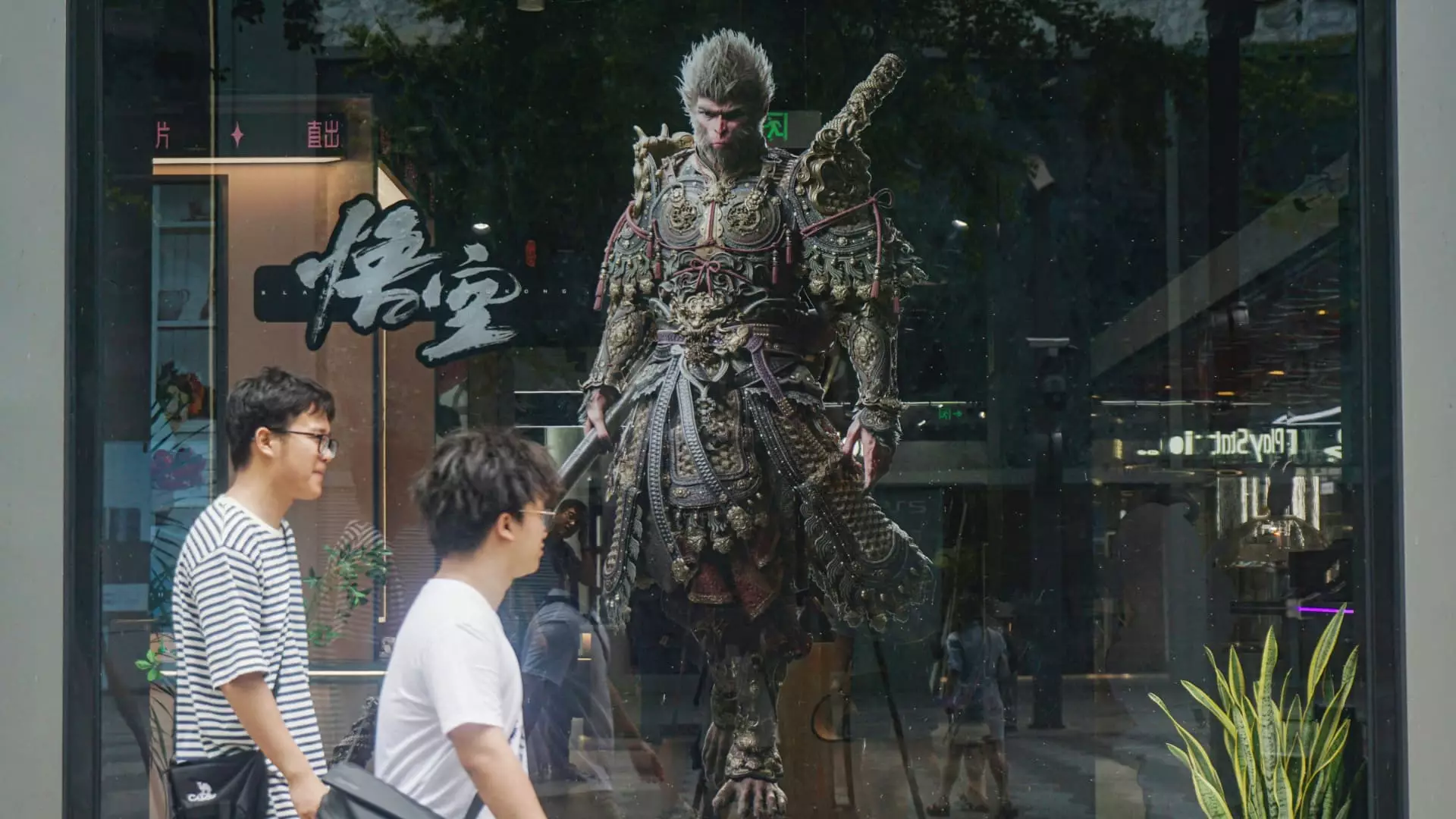China recently made headlines for its first attempt at a top-tier video game with Black Myth: Wukong, an action game based on mythological China. The game managed to sell over 10 million units within three days of its launch in August. This success has been seen as a significant milestone for the Chinese gaming industry, especially after Beijing’s recent crackdown on gaming. The game continued to perform well ten days after its release, ranking second in revenue in the U.S. and first globally on the Steam platform, where it was priced at around $60. Dino Ying, chairman of Hero Games, one of the publishers of the game, expressed optimism about the future of AAA games coming out of China, hinting at more projects in the pipeline.
Despite the success of Black Myth: Wukong, China has faced challenges in developing its own AAA games in the past. Ivan Su, a senior equity analyst, mentioned that the primary reason behind this was the prolonged production time required for AAA games. He noted that creating mobile games was more cost-effective for developers in the country. However, the recent success of Black Myth: Wukong has sparked hope for more high-quality games to come out of China in the future. Hero Games’ journey with Game Science, the developer behind Black Myth: Wukong, involved multiple failed projects before hitting the jackpot with the latest game. The commitment of the team and the vision they had for the company played a crucial role in their eventual success.
China’s gaming industry has seen significant growth in recent years, with domestic game sales reaching billions of yuan. However, console game revenue remains relatively low compared to other segments of the market. The government’s regulatory stance towards gaming has also evolved, with Beijing approving more games in the last couple of years. Black Myth: Wukong received government approval in February, showcasing a shift in attitudes towards the industry. Dino Ying expressed his approval of the government’s approach, highlighting the increasing respect for the game industry and its positive impact on development.
Chinese-developed games have seen an increase in overseas sales, with the global market recognizing the unique cultural elements that these games bring. The incorporation of rich cultural elements in Chinese games has appealed to a global audience, distinguishing them from games developed in other regions. Ashley Dudarenok, founder of China digital consultancy ChoZan, emphasized the cultural flavor of Chinese games as a key selling point. She noted the potential for more stories from Chinese history to be turned into games with broad appeal. Hero Games’ emphasis on preserving ancient designs and culture in their games indicates a growing trend towards cultural authenticity in Chinese game development.
Apart from AAA games, there has been a rise in independent game developers in China, gaining recognition for their innovative approaches to game development. Cotton Game, a Shanghai-based company, received accolades for its indie game, Sunset Hills, which won awards for best development team and best indie game. The company’s CEO, Cotton Guo, highlighted the importance of using games to share art, philosophy, and meaningful content with players. The success of Sunset Hills, which took five years to develop and was largely hand-drawn, underscores the potential for independent developers in China to make a mark in the global gaming industry.
China’s growing presence in the gaming industry, from AAA titles to independent games, signals a promising future for game development in the country. The success of Black Myth: Wukong has opened doors for more high-quality games to come out of China, showcasing the country’s potential to compete on a global scale. With an emphasis on cultural authenticity, innovative storytelling, and a supportive regulatory environment, China is poised to make a significant impact on the gaming industry in the years to come.

